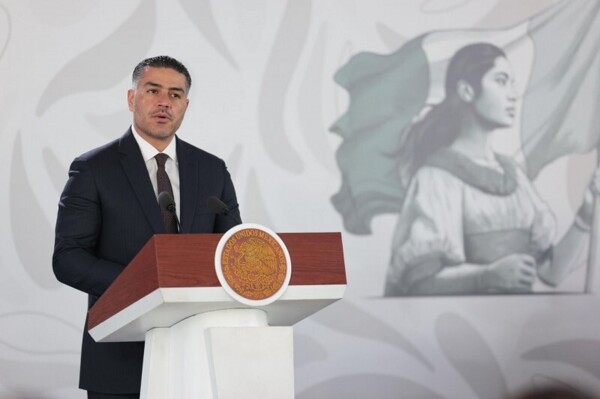
The Senate of the Republic approved the reform to the Federal Fiscal Code, which expands the powers of the Tax Administration Service (SAT) to prevent and combat tax evasion and avoidance. With 76 votes in favor and 38 against, the senators approved the bill in general as sent by the Chamber of Deputies.
The bill includes the addition of Article 30-B, which obliges digital platforms providing services in Mexico to allow tax authorities permanent, online, and real-time access to the information necessary to verify compliance with tax obligations. This covers operations on streaming platforms like Netflix, shopping services like Mercado Libre, or transportation services like Uber.
Legislator from the National Action Party (PAN) Imelda Sanmiguel warned that this allows the tax body to "monitor in real-time digital platforms such as Netflix, TikTok, Uber, Mercado Libre, and Tinder." She noted that the reform has been dubbed by internet users as the "new spy law," and warned that it creates a worrisome limit "between oversight and the right to privacy in the digital environment."
Furthermore, she criticized that the initiative would allow knowing data about "commercial movements, purchases, sales, expenses, preferences, platforms visited, and geolocation," under what she classified as "the fallacy of supposed modernization." Sanmiguel denounced that the reform builds "a system that treats us all as if we were guilty until proven otherwise" and that it ignores the presumption of innocence: "Yes, they also throw the presumption of total innocence to hell, they are already violating the Constitution."
The PAN legislator highlighted the practical risks of the measure: "If a citizen has a store and takes a few days to deliver their records, the SAT can block their digital seal and they will not be able to issue invoices or collect payments."
On the other hand, a senator from the ruling party affirmed that the project "is aimed at protecting public health, as it promotes investment and consolidates an environment of certainty and legality for economic actors," and that "the objective of fiscal policy is not only to collect, but to redistribute, correct inequalities, encourage good practices, and punish abuses."
For its part, Movimiento Ciudadano deputy Luis Donaldo Colosio Riojas expressed his concern about the reform and assured that the change "transcends the technical and puts at risk the most elementary principles of the Rule of Law." Colosio explained that the reform "would oblige digital platforms to allow tax authorities unrestricted, online, real-time, and permanent access to their internal systems," and pointed out that although this is presented as a mechanism to strengthen revenue collection, "in reality, it opens the door to unlimited surveillance, administrative censorship, and digital insecurity that threatens millions of users."
The legislator highlighted that Mexico has built its tax framework on a balance between revenue efficiency and respect for rights, and assured that the new article "breaks that balance."
In case of non-compliance, a temporary block of access to the digital service is envisaged. The president of the Finance and Public Credit Commission, Miguel Ángel Yunes Márquez, explained that the reforms establish a unified withholding tax rate on digital platforms of "2.5 percent for individuals, four for legal entities with a Federal Taxpayer Registry (RFC), and 20 for those who do not provide the RFC," and added that "with this, a level playing field for digital and traditional commerce will be guaranteed."
No authority should have the possibility of constantly observing the citizenry's activity without a court order or an individualized cause."
While the PAN's Imelda Sanmiguel said that under the fallacy of modernization, the SAT is empowered to access personal data. She explained that the measure obliges platforms to deliver "all the personal and commercial information of buyers, sellers, and users," which, in her opinion, gives the SAT "excessive powers to spy on all of us, not just taxpayers."
She reiterated that "there is no legitimate justification for continuous and indiscriminate access to the internal information of digital platforms."














